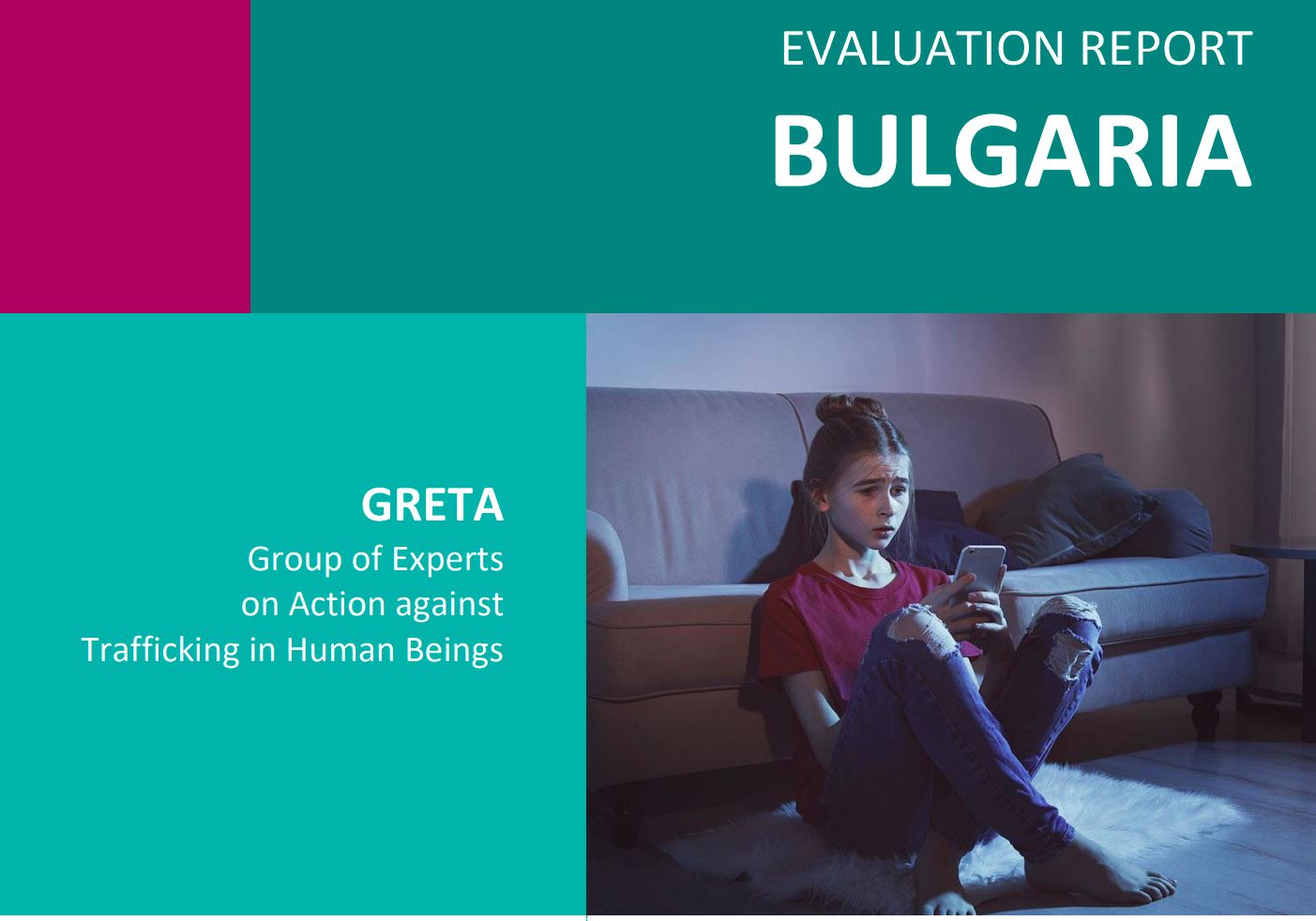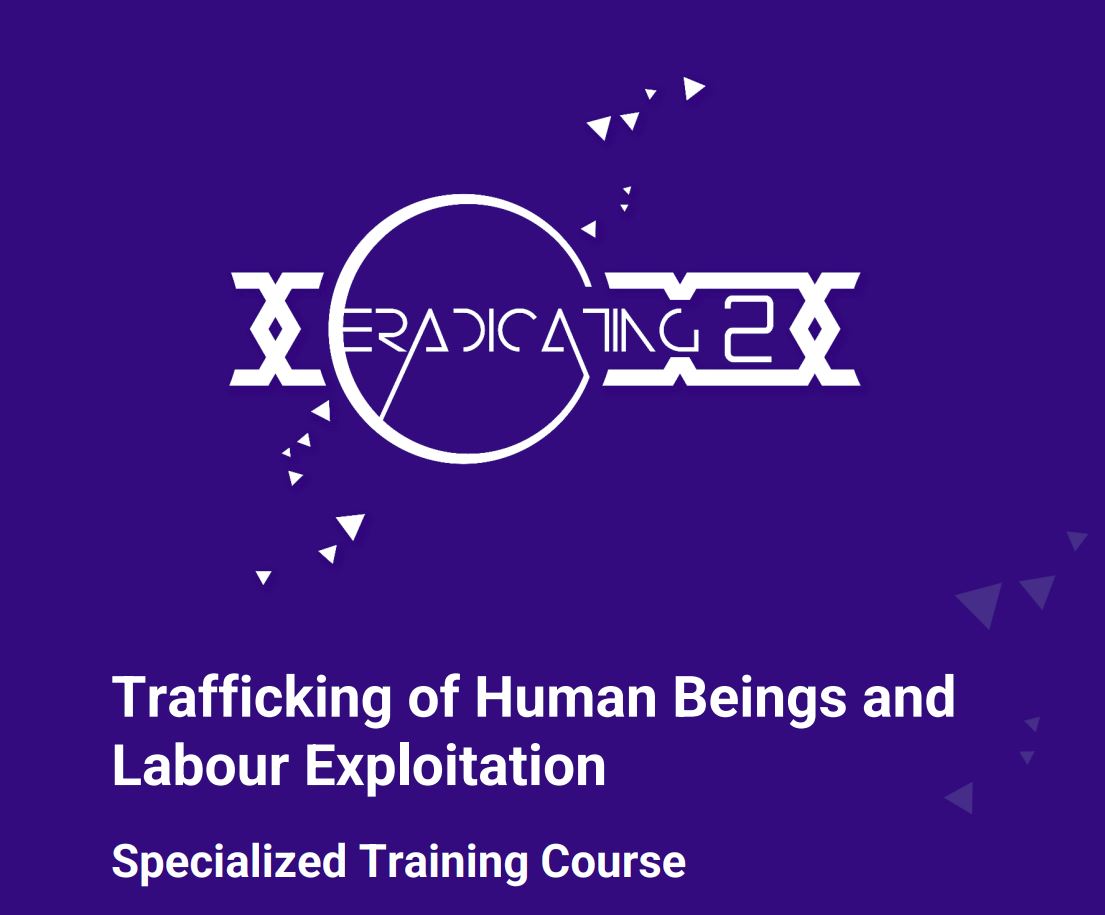GRETA’s Fourth Evaluation Report on Bulgaria Highlights Key Vulnerabilities and the Role of Civil Society

On 9 October 2025, the Group of Experts on Action against Trafficking in Human Beings (GRETA), operating under the Council of Europe, published its fourth evaluation report on Bulgaria, covering the period 2020–2024.
It is part of GRETA’s regular monitoring of how Bulgaria implements the Council of Europe Convention on Action against Trafficking in Human Beings as the main international instrument setting standards for victim protection and prevention of exploitation in Europe.
Key Focus of the New Report
This fourth evaluation concentrates on the vulnerabilities that make people susceptible to trafficking and the emerging challenges linked to online recruitment and digital control. It analyses a wide range of risk factors, including poverty, discrimination, lack of education, domestic violence, addictions, unequal access to services, and specific risks affecting children, migrants, persons with disabilities, and LGBTI individuals.
Among the main trends identified:
- Sexual exploitation of women and girls remains the most prevalent form of trafficking;
- There is an increase in the number of identified victims of forced labour, predominantly men;
- The online environment has become a key channel for recruitment and control by traffickers;
- The number of foreign nationals trafficked within Bulgaria is growing;
- Children, people from vulnerable communities, migrants, refugees (including Ukrainian refugees), persons affected by domestic violence, and individuals with addictions or debts are among the most at-risk groups.
The report highlights the heightened vulnerability of Roma from segregated communities, calling for social and economic measures in Roma neighbourhoods, including stronger involvement of Roma mediators.
A study by Dignita Foundation in the segregated Karmen district of Kazanlak is cited as an example. It reveals the urgent need for stronger institutional response identifying young people struggling with substance dependency who have fallen victim to sexual exploitation. The findings underline that prevention must begin long before the involvement of criminal justice mechanisms.
Main Findings and Recommendations to Bulgaria
Bulgaria needs a clear long-term strategy and a stable budget for combating human trafficking. Frequent leadership changes at the National Commission for Combating Trafficking in Human Beings and inconsistent funding have delayed crucial reforms. In recent years, the adoption of the national anti-trafficking programme has been postponed due to administrative reshuffling and budget delays, which directly affect the work of local commissions and victim protection services.
Other key recommendations include:
- Strengthening prevention among vulnerable groups, particularly children and Roma communities through sustained social and economic measures;
- Building capacity to investigate online trafficking and cooperating with technology companies to detect and prosecute digital crimes. GRETA notes the evolution of trafficking methods: social networks, job sites, and housing platforms have become new spaces for exploitation;
- Ensuring comprehensive victim support, including access to healthcare, social services, and free legal aid, especially for men and persons with disabilities. Civil society organisations currently provide much of the frontline support, shelter, and professional training for specialists. GRETA emphasises that NGOs are the backbone of the victim support system, and their capacity must be strategically reinforced through sustainable public funding and closer cooperation with the state;
- Improving identification of victims among asylum seekers, refugees, and migrants, and developing social and economic integration programmes for refugees;
- Enhancing labour inspection and oversight of employment conditions for migrant workers, and introducing certification for recruitment agencies that hire workers abroad.
The Contribution of Dignita Foundation
The work of Dignita Foundation is recognised in the report as a good practice in field-based research and community-level prevention. Between 2023 and 2024, Dignita conducted a series of field studies identifying the risk factors leading to human trafficking among two key groups – Ukrainian refugees and women from marginalised Roma communities.
The analyses revealed how poverty, lack of access to education, early marriages, and substance abuse intertwine to create conditions for exploitation. In some communities, vulnerability begins in childhood among girls growing up in environments of violence or boys who leave school early and seek survival through precarious labour or migration.
During GRETA’s monitoring visit to Bulgaria, Dignita representatives took part in consultations, providing the perspective of specialists who work directly with people at risk. This ground-level insight proved vital for an accurate evaluation of the national system and for formulating practical recommendations to the institutions.
GRETA’s report offers a clear direction for action, showing that efforts to combat trafficking in human beings must be long-term, coordinated, and grounded in a human rights-based approach. For Bulgaria, this means not only meeting international standards but also building a sustainable system in which prevention starts within the community, and support reaches everyone who needs it.
Dignita Foundation will continue to work toward this goal through research, training, and policy initiatives that place human dignity at the heart of anti-trafficking efforts.
Latest News:

Vulnerabilities to Labour Exploitation: Field Insights from Kardzhali and Shumen

How Institutions Can More Effectively Counter Labour Trafficking
